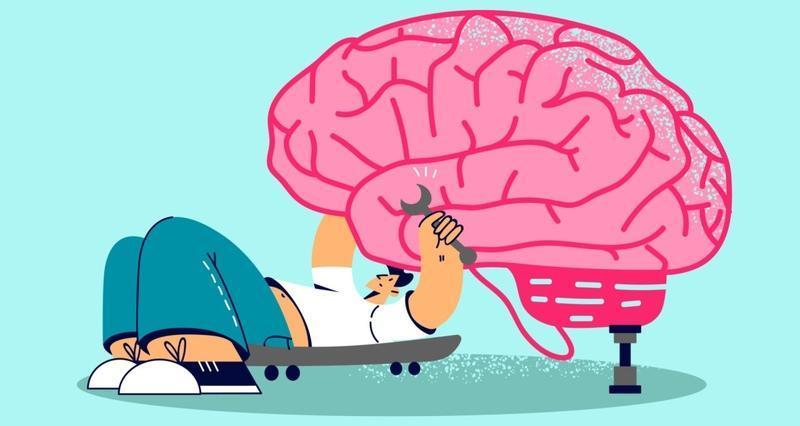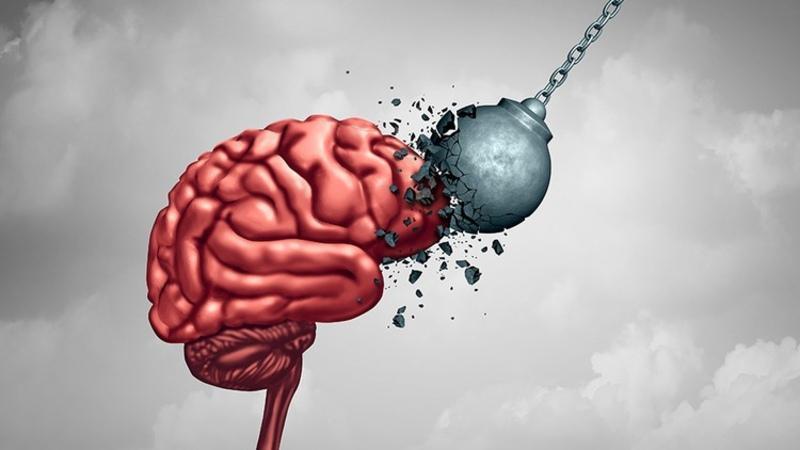Navigating a complex web of emotions characterizes living with depression. Recent research illuminates an intriguing element that intricately complicates this struggle. It’s the link between painful memories and heightened emotions. Those grappling with depression stand to gain valuable insights into managing their emotional well-being through an understanding of this dynamic. Exploring the nuanced interplay between memory and emotion is a crucial aspect of mental health. This article deeply investigates how painful memories profoundly impact emotional states.
Memory's Emotional Residue:
Like echoes, memories reverberate through our minds. They leave a potent emotional residue, particularly in the context of depression. This 'emotional echo' intensifies the impact when distressing experiences are recalled, thus creating a profound emotional terrain for individuals grappling with depression. Notably, this lingering emotional residue doesn't just influence present states. It also shapes future perceptions and responses. Each memory, bearing the weight of its emotional imprint, contributes to those with depression's intricate emotional landscape in a manner akin to a persistent ripple effect.
The complexity of the phenomenon, memory consolidation in depression, deepens further due to emotional residue. Research reveals potential alterations within the hippocampus, a crucial brain region for memory formation in individuals suffering from depression. these structural modifications might amplify memories' emotional aspects and consequently heighten their recall with increased emotional charge. Essential to tailoring interventions that address both emotional sensitivity and the underlying neural processes associated with memory's emotional residue, is a thorough understanding of these intricacies.
- Consideration: Practitioners should be aware that addressing emotional residue goes beyond surface-level emotions. It involves understanding the intricate interplay between memory, emotion, and neural structures.
- Caution: Overemphasis on emotional content in therapy without considering the neurobiological aspects might provide incomplete solutions. A holistic approach is essential for comprehensive care.
Neurobiological Insights:
The neurobiological landscape of depression reveals a complex interplay, significantly impacting memory processing between neurotransmitters and brain regions. Notably, alterations in more than just serotonin occur. Changes also take place with other neurotransmitters, like norepinephrine and dopamine. These modifications contribute intricately to the amalgam of emotions and memories within individuals suffering from depression. Such imbalances in neurotransmitter levels not only affect the encoding and retrieval processes of memories but also influence their emotional coloration. Beyond individual neurotransmitters, neurobiological insights underscore the necessity of comprehending memory and emotion in terms of the brain's intricate orchestra.

Further exploration probes into neuroplasticity's pivotal role which is the brain's inherent capacity for self-reorganization. Neuroplastic changes, potentially impacting neural circuits implicated in memory and emotion regulation, may manifest in cases of depression. Comprehending these dynamic processes and understanding them rather than simply acknowledging them lays an essential foundation. It underpins interventions not limited to neurotransmitter imbalances but also to structural modifications within the brain that correlate with memory processing during depressive states.
- Fact: Neurobiological changes are not static; they can be influenced by various factors, including genetics, environment, and lifestyle.
- Noteworthy Information: The intricate web of neurotransmitter interactions highlights the importance of personalized treatment approaches, considering the unique neurobiological profile of each individual.
Breaking the Cycle:
Cognitive-behavioral therapy (CBT) is a beacon of hope in disrupting the cycle of heightened emotions linked to painful memories. It does more than reframe negative thought patterns. It empowers individuals with practical tools. This therapy interrupts the automatic association between distressing memories and intensified feelings, extending its impact beyond just cognition. It influences behavioral patterns and emotional responses in real-time situations. Fostering a proactive and empowering mindset allows individuals grappling with depression to reclaim control over their emotional narratives.
The integration of acceptance and commitment therapy (ACT) indeed offers a complementary approach. It actively encourages individuals to acknowledge distressing memories, not let these dictate emotional responses. This acceptance, when coupled with commitment towards values-driven actions, forms an unyielding foundation for navigating the emotional complexities associated with painful recollections.
- Consideration: The effectiveness of CBT lies not only in changing thoughts but also in altering behavioral responses, making it a holistic approach to emotional well-being.
- Caution: CBT may require tailored adjustments for individuals with comorbid conditions, highlighting the importance of a comprehensive assessment before implementation.
Mindfulness Practices:
Opting for mindfulness practices is a gentle yet potent strategy. These emerge to mitigate the emotional charge associated with memories. Mindful breathing, going beyond traditional meditation, takes center stage. It offers a tangible anchor in present moments. By intentionally focusing on our breath, we create mental space for observing thoughts without becoming entangled in distressing memory's emotional turbulence. Therefore, mindfulness practices act as a bridge. They connect the past and present. Furthermore, amidst an intensified storm of emotions. They offer a sanctuary of tranquility.
Research further indicates that regular mindfulness practice induces structural changes in the brain specifically, within emotion regulation-associated areas. Such alterations foster emotional resilience development. They leave a lasting impact on memory processing and response to emotionally charged memories by individuals.
- Fact: Mindfulness practices are not a quick fix but require consistent engagement to cultivate lasting changes in emotional regulation.
- Noteworthy Information: Mindfulness can be integrated into daily routines, emphasizing its accessibility and adaptability for individuals with varying lifestyles and preferences.
Support Systems and Coping Mechanisms:
Individuals navigating the complex terrain of depression and heightened emotional responses must build a robust support system as their cornerstone. Besides offering emotional support, friends and family can alleviate significantly the daily challenges faced by those with depression through practical assistance. The understanding of unique needs and triggers in an individual permits the support system to effectively tailor their aid.

In addition to external support, individuals who actively manage the impact of painful memories find empowerment in developing personalized coping mechanisms. These strategies such as creative outlets, physical activities, or mindfulness techniques form potent tools that not only provide relief but also foster emotional resilience. It is this synergy and this harmonious interplay between internal resilience and external aid that lays down a dynamic foundation for overall well-being at its core.
- Consideration: Support systems should be adaptive, recognizing that the needs of individuals with depression may evolve.
- Caution: Relying solely on external support without fostering internal coping mechanisms may hinder long-term resilience. A balance between both is crucial for sustained emotional well-being.
Conclusion
Conclusively, the intricate relationship between heightened emotions and painful memories in individuals suffering from depression requires tailored interventions. Exploring not only neurobiological underpinnings but also embracing therapeutic approaches such as CBT or mindfulness allows us to potentially break the cycle of intensified emotions through these methods. In the end, it is paramount that those grappling with depression build a robust support system while cultivating personalized coping mechanisms. These are integral parts of fostering emotional resilience when confronted by challenging memories.







